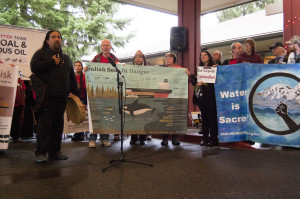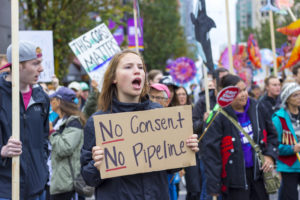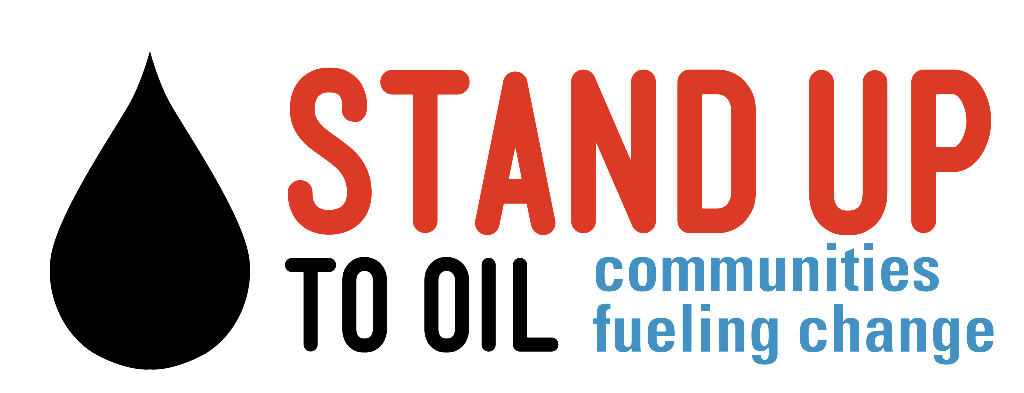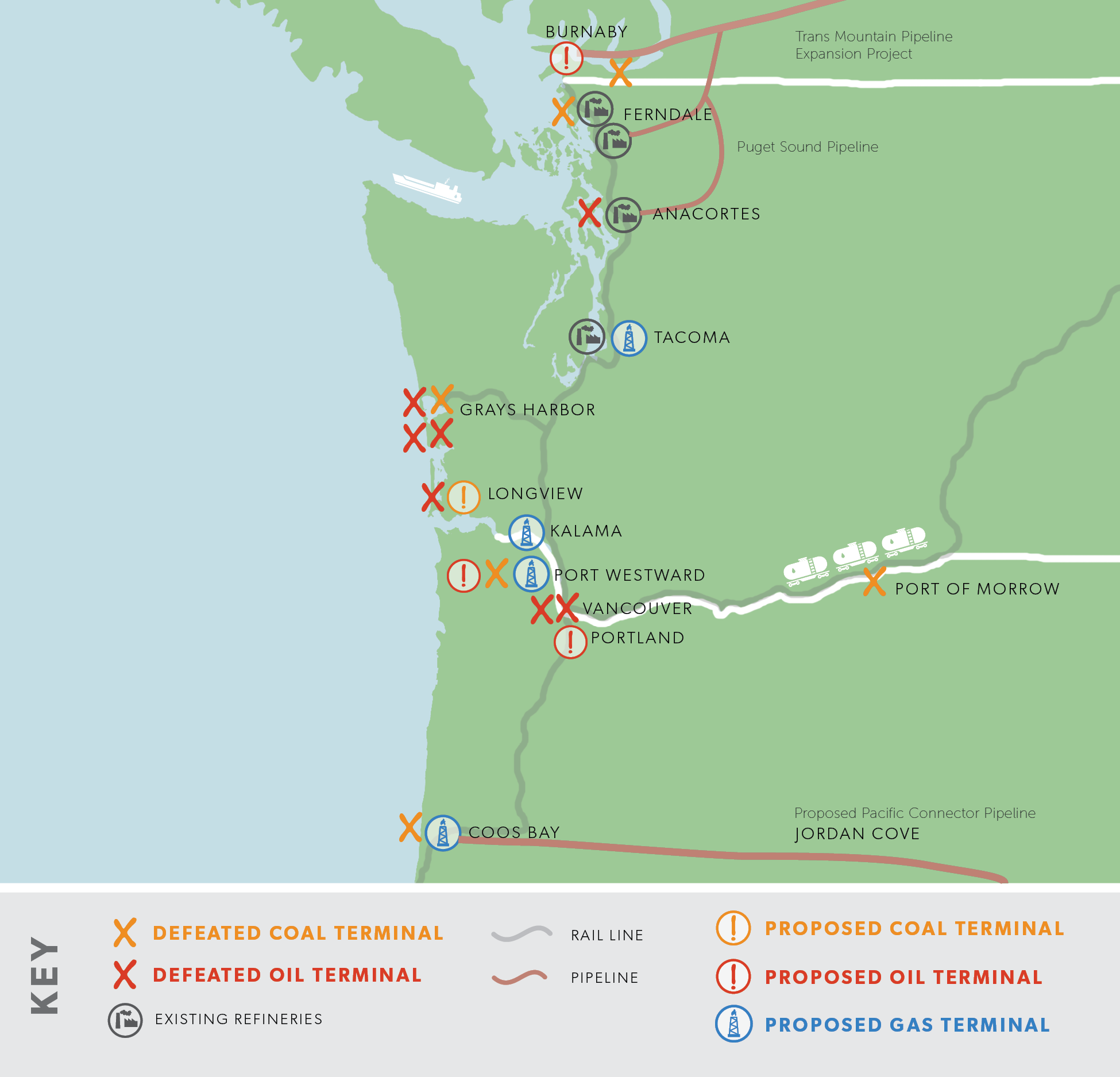Stopping New Terminals and Pipelines and Expansions
Oil terminals make poor neighbors. People living near the proposed terminals would be exposed to some of the same problems as neighbors of existing refineries including air pollution, safety risks, odor, and noise. Since its founding in 2015, the Stand Up To Oil campaign has stopped eight out of eight proposed terminals in the Pacific Northwest.
The Pacific Northwest remains a key target for the oil industry, but the threats are shifting away from major new terminal proposals and toward conversions of existing infrastructure into crude export facilities and diversification of refining operations into new products.
The fossil fuel industry’s most common tactic right now is piecemealing—making several small, seemingly insignificant changes one a time that add up to a big change with serious consequences. Stand Up To Oil diligently looks out for and prevents piecemealing projects.
Click on the map to the right to see where the terminals are located across the Pacific Northwest >>
Current Projects
 Washington
Washington
TACOMA SEAPORT SOUND – Over the last several years, SeaPort Sound Bulk Oil Terminal on the Tacoma Tideflats has been incrementally expanding, including the most recent proposal in 2020 to expand on-site storage capacity by nearly 15% without any consideration of oil spill risk, air quality, or climate impacts. Because of strong community organizing and outcry, the City of Tacoma has now required a full EIS of the proposed expansion, which will assess and disclose all the impacts of the facility, and is expected to be released in 2021.
PHILLIPS 66 AT CHERRY POINT – The Phillips 66 project at Cherry Point in Whatcom County attempted to expand the facility’s storage capacity. Earlier this year, the Stand Up To Oil coalition weighed in on the permit and pushed for strong requirements to ensure any tank expansion will not be used for crude oil export.
Oregon
ZENITH (PORTLAND, OR) – Zenith Energy is expanding shipments of heavy tar sands crude at its Willamette River facility in Portland to one or more trains per week. Mile-long trains transporting tar sands oil to Portland would travel along the Columbia River. Despite the City of Portland’s opposition to crude oil trains and efforts to legislate against new fossil fuel infrastructure, Zenith began building new rail unloading infrastructure to handle heavy oil in early 2018. Learn more about tar sands and Zenith’s dangerous plans.
GLOBAL PARTNERS (PORT WESTWARD, OR) – In 2013, Global Partners bought the Columbia Pacific Bio-Refinery at Port Westward on the Columbia River. Without public input, Global quietly transitioned the facility from an ethanol facility into a crude oil terminal. In 2017 and 2018, Global took significant steps towards re-starting and expanding shipments of crude oil. Despite strong opposition from people in Columbia County and uprail communities along the Columbia River, Global continues to push for expanded oil train shipments, oil storage capacity, and more oil tankers on the Columbia River. Read more about Global Partners here.
 Canada
Canada
TRANS MOUNTAIN PIPELINE – The Trans Mountain pipeline expansion project would bring in 890,000 barrels of crude oil per day across Canada and out through the international Salish Sea waters in oil tankers. In 2019, the Canadian government formally approved an expansion of the Trans Mountain pipeline, ignoring risks to native people, climate, and the Salish Sea. The Trans Mountain expansion is expected to result in a 700% increase in oil tankers, further endangering the Southern Resident orca population, and increasing the risk of a catastrophic oil spill of heavy diluted bitumen. The Stand Up To Oil campaign is supporting the Trans Mountain Pipeline fight in British Columbia as much as we can from our side of the border, and closely tracking the Puget Sound Pipeline spur, a pipeline connecting the existing Trans Mountain pipeline to Washington’s four northern refineries. Unfortunately, pipeline construction is 98% complete as of January 2024 but at a huge economic cost. The Canadian government bought the pipeline for about $3 billion in order to ensure the completion of the expansion project. Four years later the cost of completing the project has ballooned to $34 billion–all at the expense of the Canadian taxpayer.

Victories
- Tesoro Savage Oil Terminal (Vancouver, WA)
- NuStar Energy (Vancouver, WA)
- Westway Terminal Company (Grays Harbor, WA)
- Imperium Renewables/Renewable Energy Group (Grays Harbor, WA)
- U.S. Development Group (Grays Harbor, WA)
- Shell Oil (Anacortes, WA)

